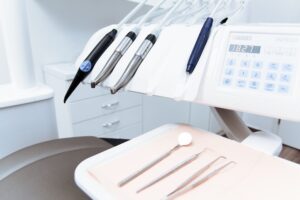 Medical device manufacturing is a vital industry that plays a significant role in our healthcare system. The sector develops and provides a diverse array of medical products for use in a wide range of applications, be it medical stylets and pacemakers or X-ray and MRI machines. As an industry, the manufacturing of medical devices can touch upon all or any of the processes of production, from design and fabrication to packaging and specialty shipping.
Medical device manufacturing is a vital industry that plays a significant role in our healthcare system. The sector develops and provides a diverse array of medical products for use in a wide range of applications, be it medical stylets and pacemakers or X-ray and MRI machines. As an industry, the manufacturing of medical devices can touch upon all or any of the processes of production, from design and fabrication to packaging and specialty shipping.
What is Medical Manufacturing?
The manufacturing of medical devices, instruments, and equipment used in healthcare is part of a greater medical manufacturing industry. That industry comprises two broad areas. The first is the actual medical device manufacturing sector. This includes all aspects of the design, fabrication and production processes related to producing a medical device. The second area relates to the development of technologies and processes that are used in medical manufacturing. In the ever-growing field of material sciences combined with innovation and advancements in technology, the field of medical device manufacturing continues to expand.
In the U.S., to ensure the safety and efficacy of medical devices, medical device manufacturing is regulated by the Food and Drug Administration or, as it’s commonly referred to as, the FDA. With regard to medical devices, manufacturers must comply with and meet FDA regulatory requirements and standards developed for the device class when designing, manufacturing, and marketing a product.
What is Considered a Medical Device?
The FDA classifies a medical device as any type of machine, instrument, equipment, device, or delivery system that is involved with or used for any type of medical purpose or application, with the intention to affect the body in a non-chemical manner. Though a medical device can be implanted, it cannot be absorbed or metabolized by the body.
Medical devices, then, are essential for public health. They are used for treatment and prevention, as well as in testing, monitoring, studying, and diagnosing diseases and other biological human conditions. The companies that develop and manufacture medical devices serve an important and vital role in health and healthcare, the biological sciences, and all medical-related disciplines and industries.
Custom Manufacturing of Medical Devices and Components
One particular sector of medical device manufacturing, and an important part of the medical device industry, is the practice of outsourcing the production of essential component parts used in the assembly of medical devices and equipment. Many medical device companies contract with specialty manufacturers or OEMs (Original Equipment Manufacturers) to fabricate customized component parts for their devices and equipment.
Customized medical device manufacturing serves a wide range of biotech industries. These manufacturers not only can save the primary manufacturer time and resources, but are generally better equipped with the necessary personnel, production capabilities, equipment, and material for manufacturing a medical device component part or product.
One such area of custom medical manufacturing is in spring components and wire forms that are used in medical devices and applications. Any medical device or surgical instrument that requires a mechanism to function will undoubtedly have a spring component. MRI and X-ray machinery, dental x-ray with articulated arms, any type of booms, table and bed lifts, wheelchairs, medical testing and monitoring equipment, fluid control and delivery devices, anesthetic infusion devices, sterilization valves, various implants, shunt valves and even medical equipment drawer closing mechanisms are all types of medical devices that require springs to function. Wire forms are used to produce a variety of medical devices, ranging from spinal implant rods and medical slips to numerous types of medical stylets.
Spring and wire form material must also be medical grade. Materials such as stainless steels, copper, titanium, and cobalt-chrome alloy are just some of the more common metals and metal alloys used in medical device manufacturing. An exotic metal alloy, Elgiloy®, combines excellent strength with corrosion resistance and formability and is used in the manufacture of springs. As with any medical device, when applicable, the design, material, and function must adhere to the regulatory requirements and guidelines as defined by the FDA.
James Spring & Wire is a leader in the medical device manufacturing of customized parts and components for the biotech industry sector. We offer a state-of-the-art manufacturing facility with a complete tool and die shop, and advanced computerized design, inspection and CNC fabricating technology capable of producing precision parts and components for medical device manufacturing of your product. We are ISO registered and are experienced in exotic materials often needed for customized medical devices. Contact us today to discuss our medical device manufacturing capabilities. We can help you with your project!

